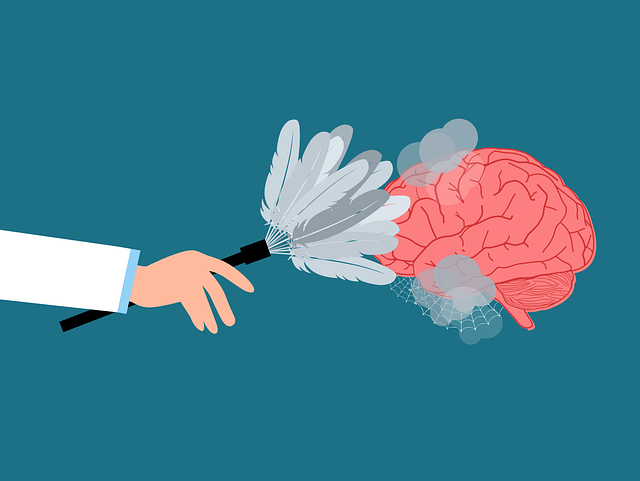Centennial Men's Issues Therapy offers a comprehensive approach to tackling substance abuse among men, addressing emotional distress and root causes through evidence-based strategies like CBT and compassion cultivation. By identifying triggers, providing tailored cultural support, and incorporating mindfulness, they empower individuals to make healthier choices and achieve long-term recovery. Their programs include individual therapy, group support, and educational workshops, fostering resilience and a safe environment for successful healing.
Substance abuse poses significant risks to men’s mental health, making it a pressing issue in today’s society. This article explores comprehensive risk reduction strategies tailored for men seeking support through Centennial Men’s Issues Therapy. We delve into the understanding and impact of substance abuse on mental well-being, identifying triggers and risky behaviors. Additionally, evidence-based approaches are showcased to effectively mitigate risks, while long-term support and relapse prevention tactics ensure sustained recovery.
- Understanding Substance Abuse and Its Impact on Men's Mental Health
- Identifying Risky Behaviors and Triggers for Substance Misuse
- Evidence-Based Strategies for Effective Risk Reduction
- Long-Term Support and Relapse Prevention in Centennial Men's Issues Therapy
Understanding Substance Abuse and Its Impact on Men's Mental Health

Substance abuse is a complex issue that significantly impacts men’s mental health and overall well-being. It often arises as a coping mechanism for underlying emotional or psychological distress, stress, or traumatic experiences. Men, in particular, may struggle to express their emotions openly, leading to a higher risk of turning to substances as a form of self-medication. This behavior can exacerbate existing mental health conditions and contribute to the development of new ones, such as depression, anxiety disorders, and substance use disorders (SUDs).
Centennial men’s issues therapy play a pivotal role in addressing this challenge. Through therapy, individuals can gain insights into their emotional intelligence, learn healthy coping strategies, and develop effective mechanisms to manage stress and prevent burnout. Emotional intelligence, a key component of mental wellness coaching programs, equips men with the ability to recognize and regulate their emotions, fostering better decision-making and improving relationships. By focusing on both the root causes of substance abuse and promoting mental wellness, these therapeutic interventions offer a holistic approach to risk reduction, aiming for long-lasting positive outcomes in men’s lives.
Identifying Risky Behaviors and Triggers for Substance Misuse

Identifying risky behaviors and triggers is a crucial step in developing effective strategies for substance abuse prevention and reduction. Many individuals engage in certain activities or face specific situations that significantly increase their vulnerability to substance misuse. For instance, stress, peer pressure, and emotional distress are common triggers that can lead to substance abuse among young adults. Recognizing these potential catalysts is the first line of defense in Centennial Men’s Issues Therapy.
Cultural sensitivity in mental healthcare practice plays a vital role here. Different cultural backgrounds bring unique perspectives on coping mechanisms and triggers. Therapists trained in this area can provide tailored support, considering the individual’s cultural context to address underlying issues. Additionally, community outreach program implementation can further aid in identifying at-risk behaviors by fostering open dialogue and offering accessible resources. Encouraging individuals to develop inner strength through counseling and self-care practices also empowers them to resist substance misuse triggers and make healthier choices.
Evidence-Based Strategies for Effective Risk Reduction

Substance abuse poses significant risks to individuals and communities, making it imperative to employ evidence-based strategies for effective risk reduction. Centennial Men’s Issues Therapy offers a range of therapeutic approaches tailored to address the unique challenges faced by men struggling with substance misuse. One such strategy is Cognitive Behavioral Therapy (CBT), which helps individuals identify and change negative thought patterns and behaviors associated with drug use. CBT encourages healthy coping mechanisms, problem-solving skills, and emotional regulation, thereby reducing the likelihood of relapse.
Additionally, Compassion Cultivation Practices, a key component of Burnout Prevention Strategies for Healthcare Providers, foster empathy and self-compassion in both patients and therapists. Incorporating mindfulness techniques and Cultural Sensitivity in Mental Healthcare Practice ensures that therapeutic interventions are tailored to individual needs while respecting diverse cultural backgrounds. These comprehensive approaches not only enhance the effectiveness of risk reduction efforts but also contribute to the overall well-being of those seeking treatment, ultimately breaking down barriers to recovery.
Long-Term Support and Relapse Prevention in Centennial Men's Issues Therapy

Centennial Men’s Issues Therapy offers long-term support and relapse prevention programs tailored to address the unique challenges faced by individuals in recovery from substance abuse. This comprehensive approach extends beyond immediate treatment, providing a safe and supportive environment for clients to develop coping mechanisms and build resilience against potential triggers. Through individual therapy sessions, group support groups, and educational workshops, participants gain insights into their addiction’s root causes and learn effective strategies to manage cravings and avoid relapse.
The program incorporates Burnout Prevention Strategies for Healthcare Providers, ensuring that both clients and therapists receive the necessary tools to maintain long-term recovery. Additionally, Healthcare Provider Cultural Competency Training is integrated to foster an empathetic and inclusive environment, while Crisis Intervention Guidance equips therapists with the skills to handle acute situations, promoting client safety and well-being throughout their recovery journey.
Substance abuse is a complex issue, particularly for men’s mental health. By understanding its root causes and implementing evidence-based strategies, such as those offered by Centennial Men’s Issues Therapy, individuals can effectively reduce risks and foster long-term recovery. Identifying risky behaviors and triggers is the first step towards change, followed by adopting proven methods like therapy and support groups. Through comprehensive approaches like those detailed in this article, including the specific focus of Centennial Mens Issues Therapy, men can navigate their challenges and lead healthier lives, free from substance abuse’s detrimental effects.














